
Find Help
More Items From Ergsy search
-

Can concussions lead to mental health issues?
Relevance: 100%
-
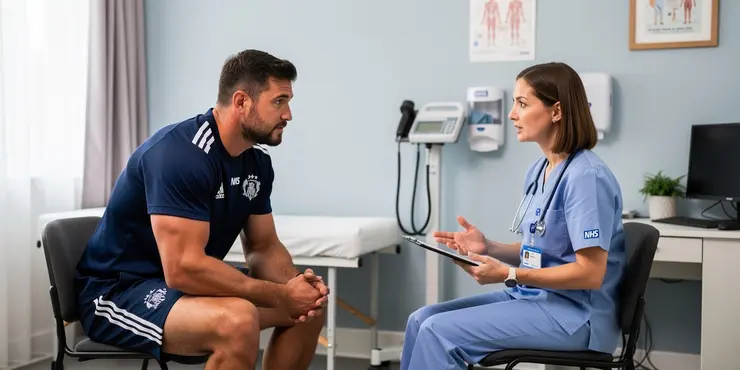
How do concussions impact long-term health in rugby players?
Relevance: 57%
-
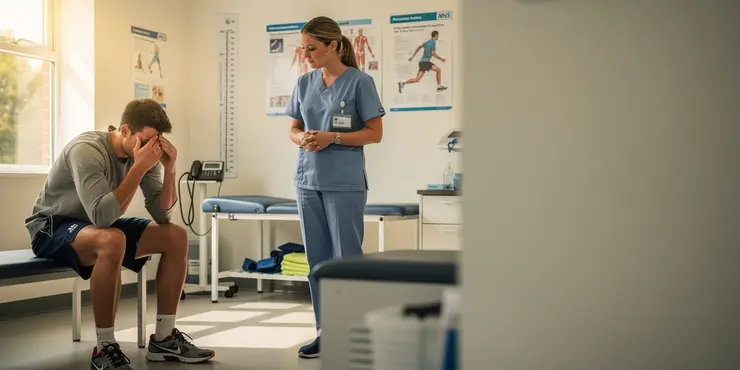
What is Concussion?
Relevance: 54%
-
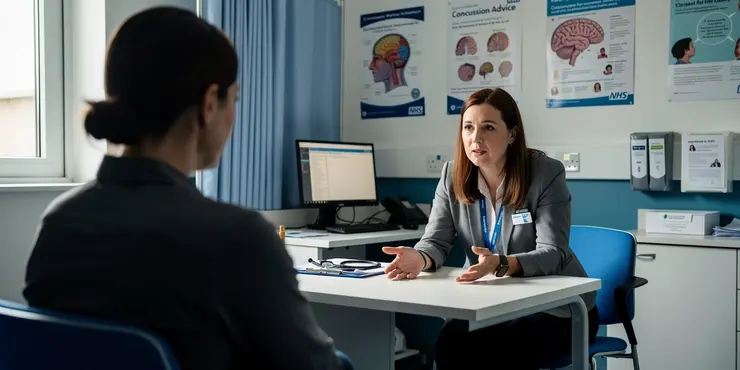
How is a concussion diagnosed?
Relevance: 48%
-
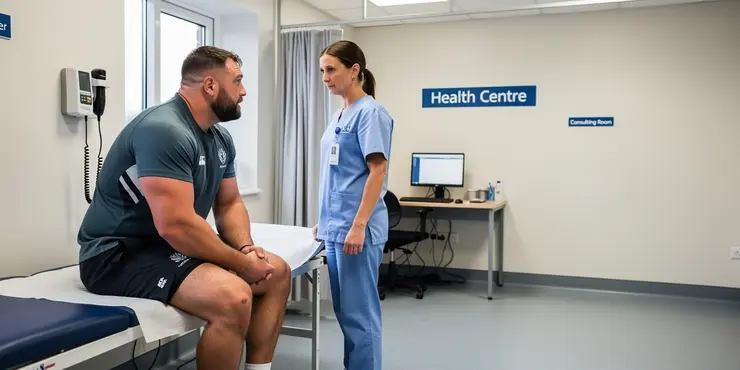
Are Concussions common in Rugby?
Relevance: 48%
-
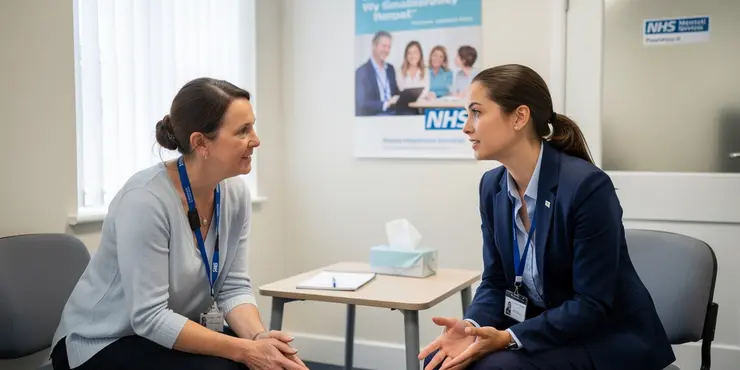
Mental Health Support Services in the UK
Relevance: 48%
-
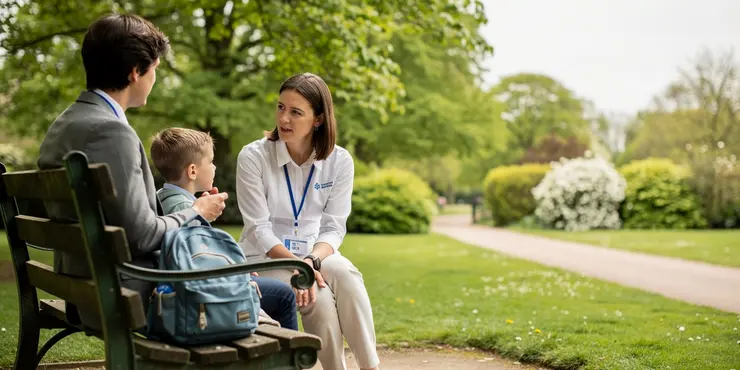
Understanding Mental Health in Children
Relevance: 48%
-

Is headache a symptom of a concussion?
Relevance: 47%
-
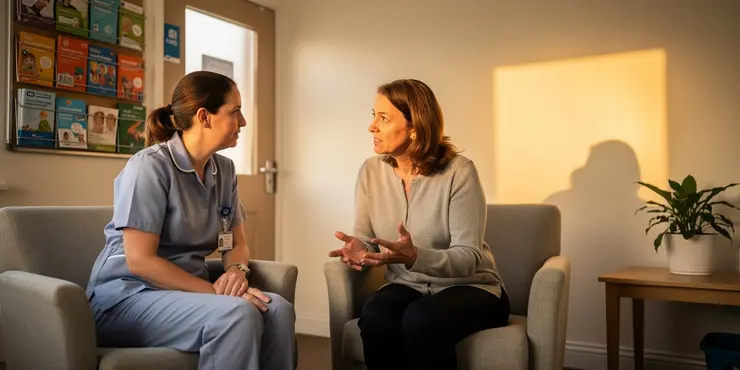
Mental Health Support Resources in the UK
Relevance: 47%
-
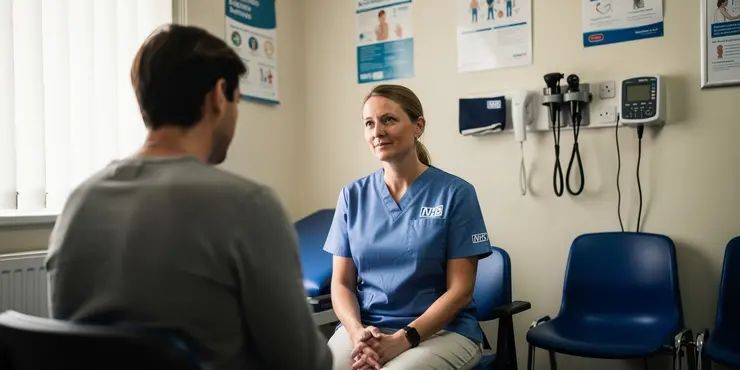
What are common symptoms of a concussion?
Relevance: 47%
-
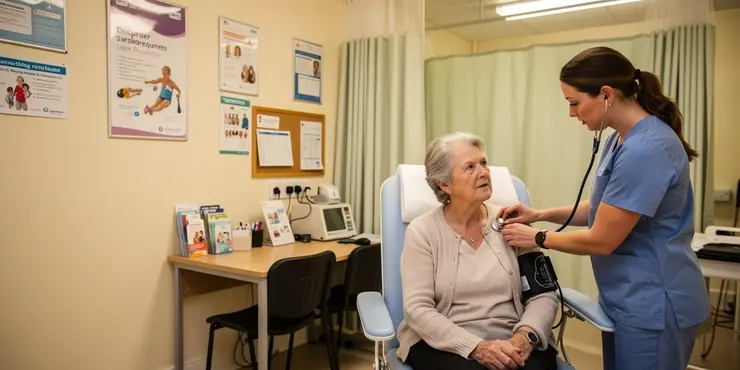
Is it safe to sleep after a concussion?
Relevance: 46%
-
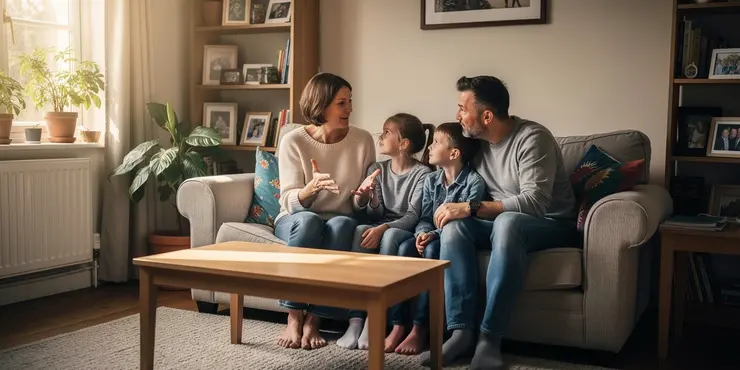
Mental Health Resources for Families
Relevance: 46%
-
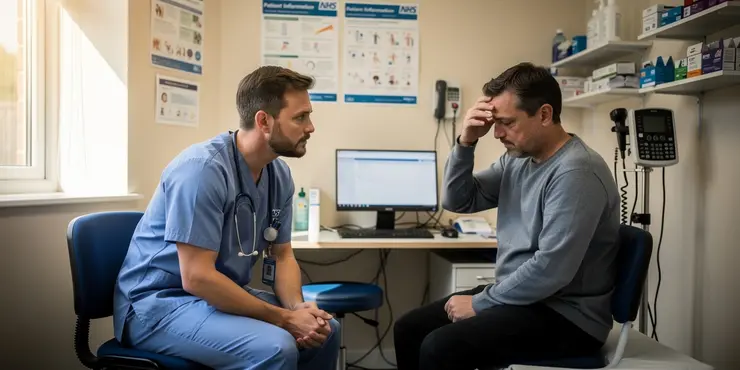
How is a concussion diagnosed?
Relevance: 46%
-
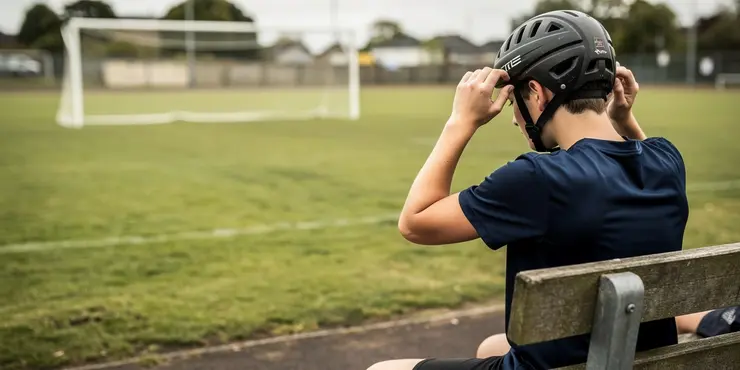
How can concussions be prevented?
Relevance: 46%
-

What support is available for rugby players who suffer concussions?
Relevance: 45%
-

Can a concussion cause memory problems?
Relevance: 45%
-
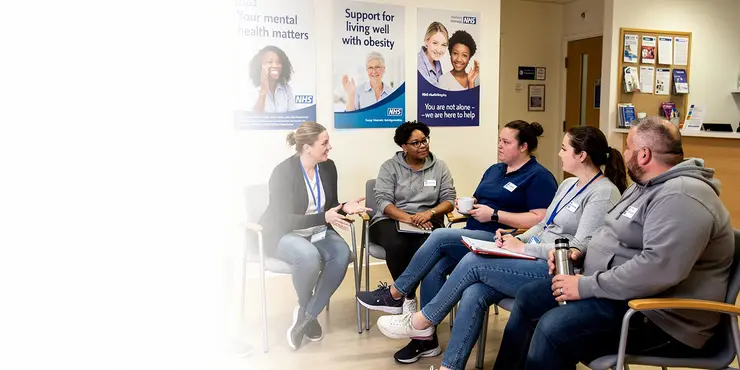
What is the impact of obesity on mental health?
Relevance: 45%
-
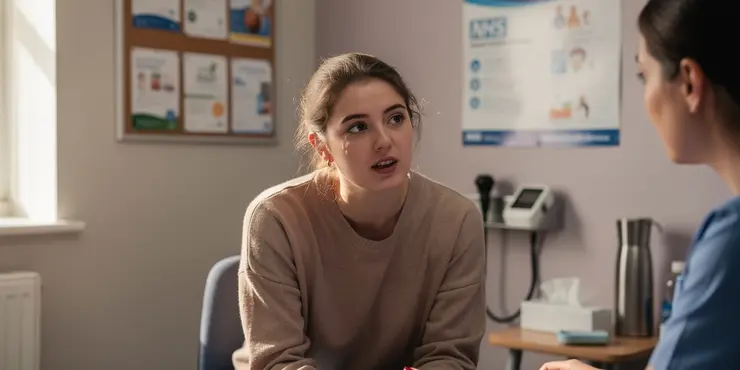
Mental Health: Laura's Story | NHS
Relevance: 44%
-
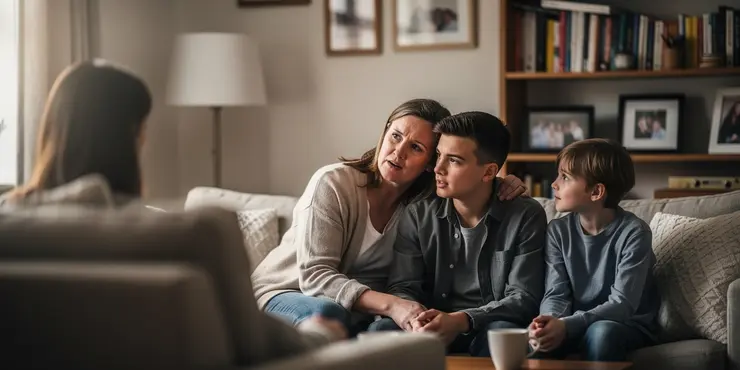
Advancements in Mental Health Resources for Families
Relevance: 44%
-
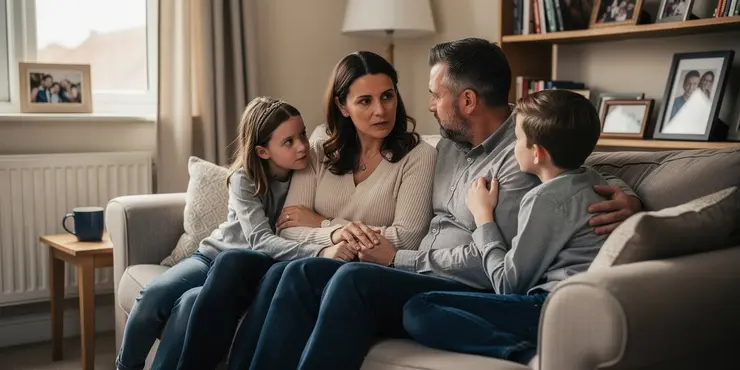
Mental Health Support Resources for Families
Relevance: 44%
-
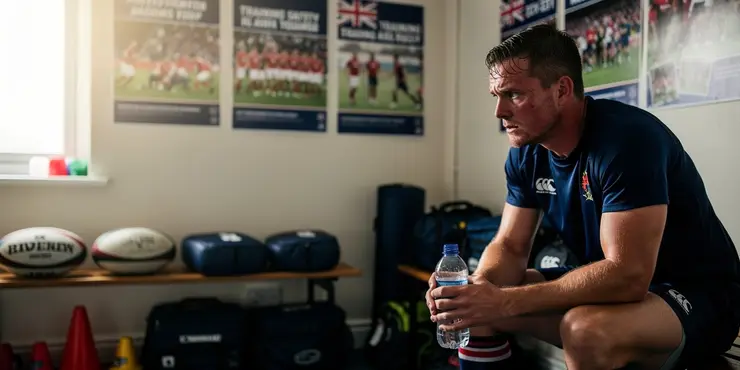
Is there a protocol for managing concussions in rugby?
Relevance: 44%
-
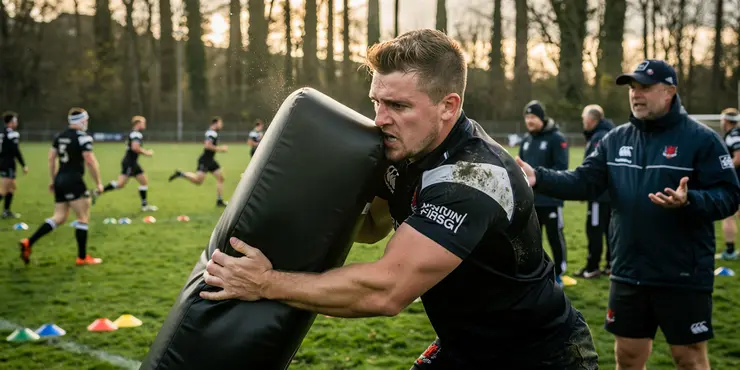
What causes concussions in rugby?
Relevance: 44%
-

Mental Health Support for Families: Resources and Strategies
Relevance: 44%
-

Mental Health Support for Families: Resources and Helplines
Relevance: 44%
-
Mental Health Support for Families: Resources and Guidance
Relevance: 43%
-
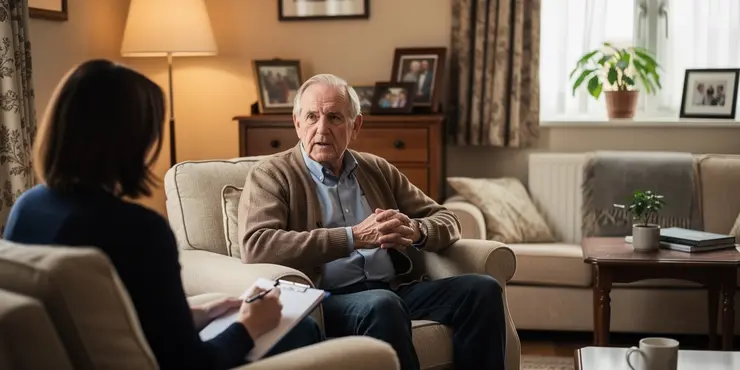
What mental health resources are available for seniors?
Relevance: 43%
-

Current Challenges in Youth Mental Health Services
Relevance: 43%
-
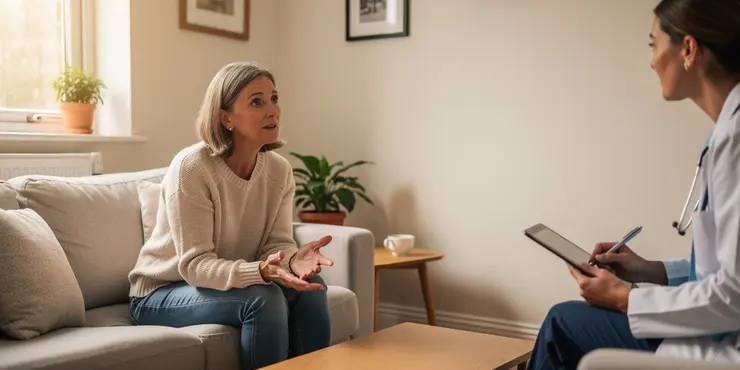
Can gut health affect mental health as one ages?
Relevance: 43%
-
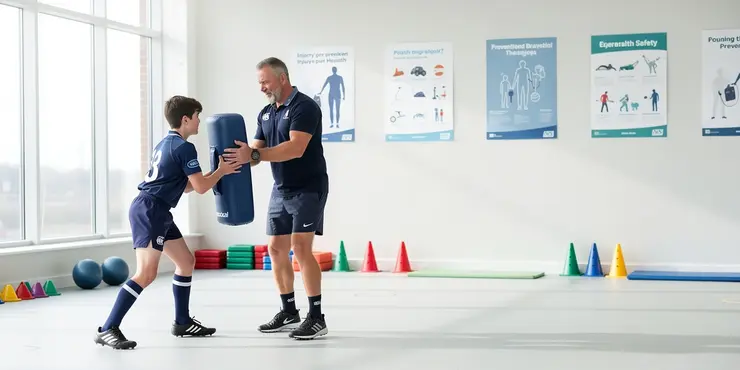
How can concussions be prevented?
Relevance: 43%
-

Accessing Mental Health Support Resources in the UK
Relevance: 43%
-
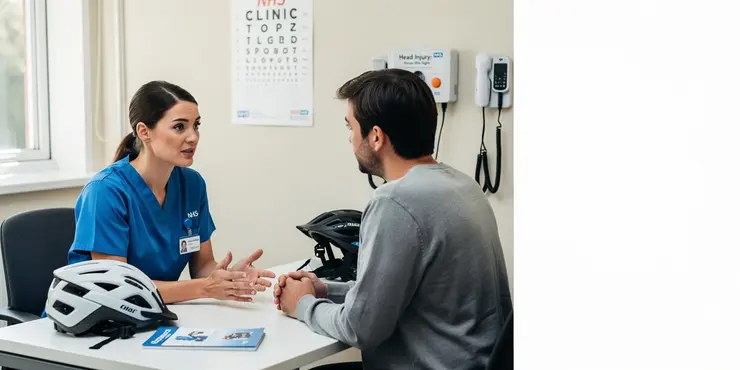
Is there any way to prevent concussions?
Relevance: 43%
-
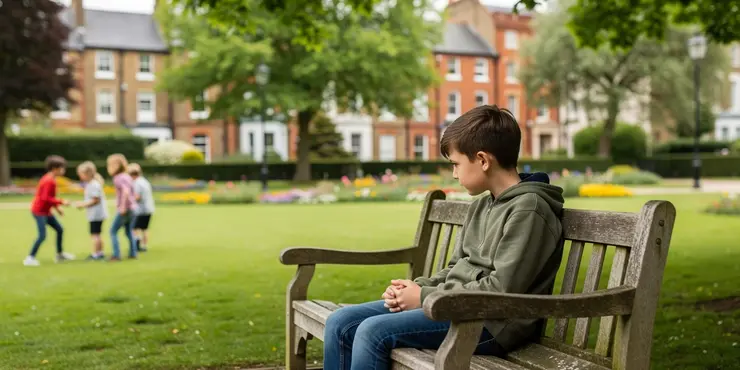
Navigating Mental Health Services for Children and Adolescents
Relevance: 43%
-
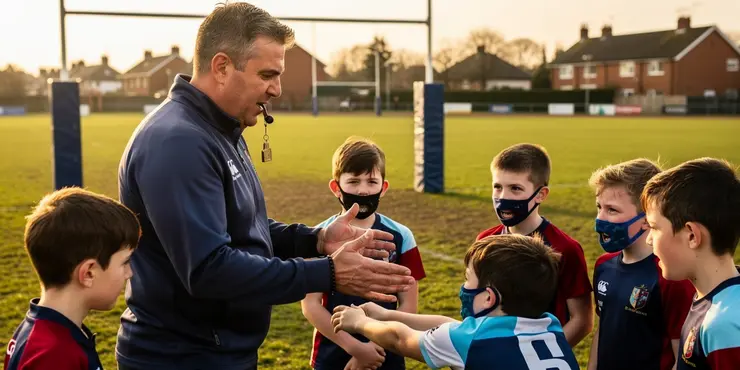
How can concussions be prevented in rugby?
Relevance: 43%
-
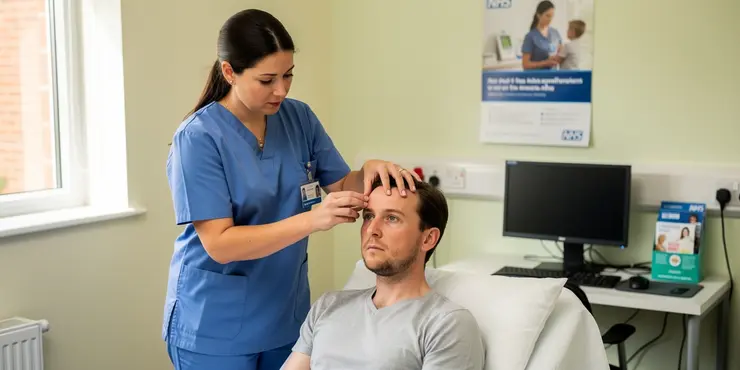
What immediate steps should be taken if someone has a concussion?
Relevance: 42%
-
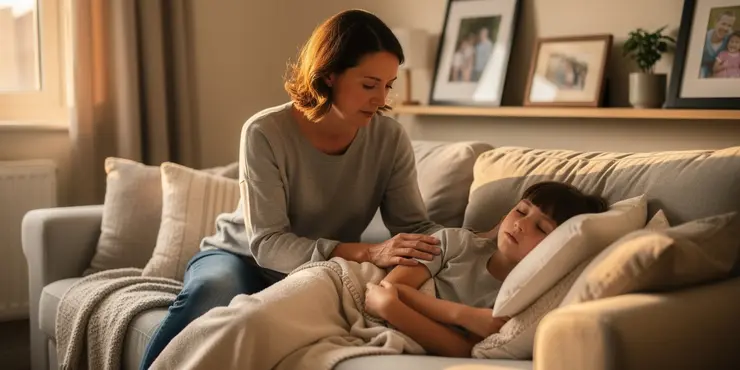
Is it safe to sleep after a concussion?
Relevance: 42%
-
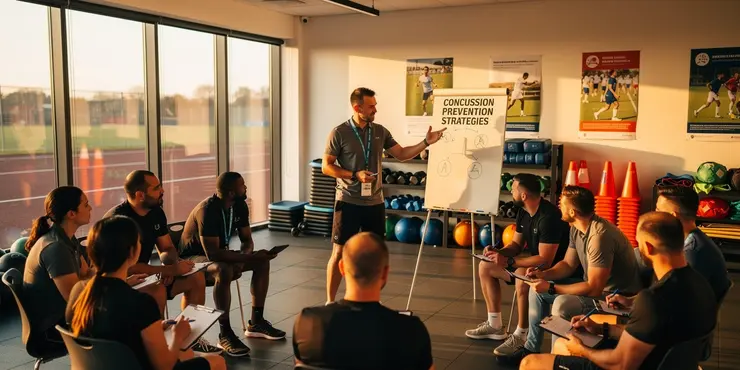
Is training available for coaches to help prevent concussions?
Relevance: 42%
-
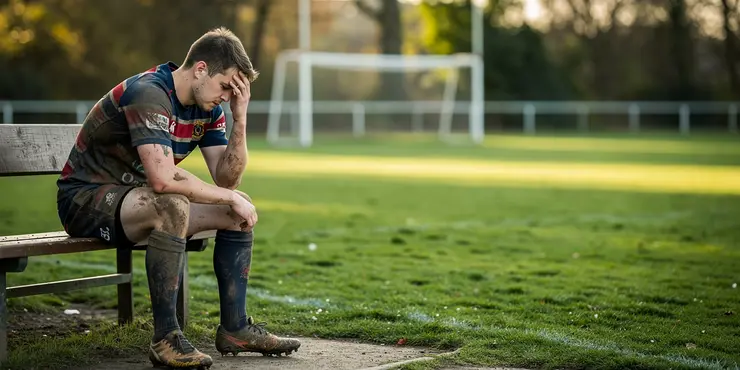
Can playing sports increase the risk of a concussion?
Relevance: 42%
-
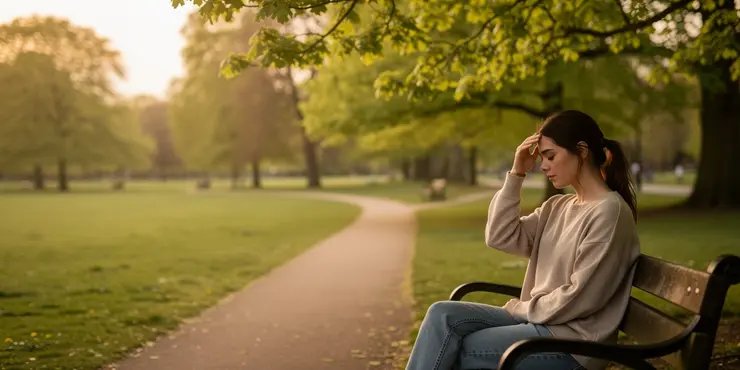
When is it safe to return to normal activities after a concussion?
Relevance: 41%
-
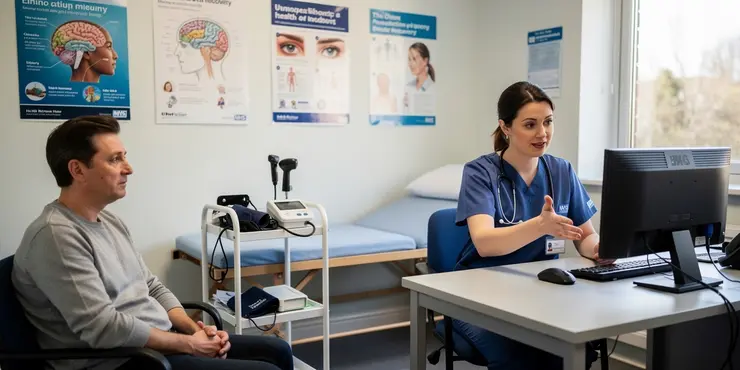
Should people with a concussion avoid screens and technology?
Relevance: 41%
-
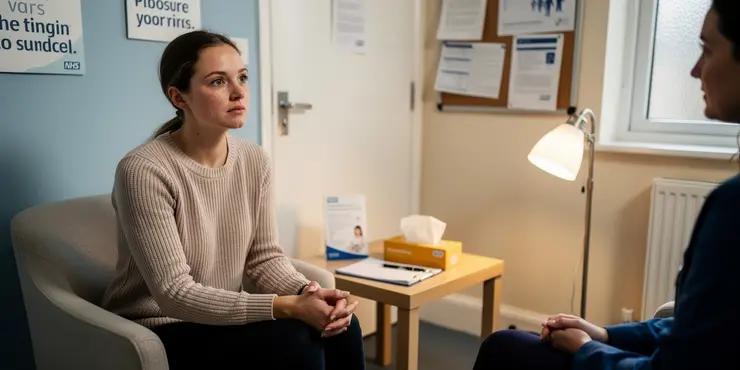
How do eating disorders affect mental health?
Relevance: 41%
Can Concussions Lead to Mental Health Issues?
Understanding Concussions
Concussions are a prevalent type of traumatic brain injury (TBI) resulting from a blow, bump, or jolt to the head. In the UK, sports-related activities, falls, and vehicle accidents are common sources. Although symptoms like headache, dizziness, and confusion may be temporary, the impact of concussions can linger, affecting an individual's cognitive and emotional well-being.Link Between Concussions and Mental Health
Recent research has intensified focus on the association between concussions and mental health issues. Studies indicate that concussions can increase the risk of developing mental health disorders such as depression, anxiety, and post-traumatic stress disorder (PTSD). Persistent post-concussion symptoms, often referred to as post-concussion syndrome, can exacerbate these mental health challenges. Individuals may experience mood swings, irritability, and difficulty concentrating, further affecting their daily lives and relationships.Long-term Effects and Risks
Long-term repercussions of repeated concussions, such as those sustained by athletes, can be severe. Chronic traumatic encephalopathy (CTE), a degenerative brain condition, has been linked to repeated head injuries and is associated with cognitive decline and severe mental health issues, including suicidal thoughts and behaviours. This connection underlines the importance of safeguarding individuals at risk, especially in high-impact sports.Addressing Mental Health Post-Concussion
Prompt recognition and treatment are vital in mitigating mental health issues following a concussion. Healthcare providers in the UK often recommend a multi-disciplinary approach, incorporating neuropsychological assessments and therapeutic interventions. Cognitive behavioural therapy (CBT) and other therapeutic strategies can be effective in managing anxiety and depression symptoms. Support networks, both professional and personal, play a crucial role in recovery and resilience building.Conclusion
Concussions can indeed lead to significant mental health challenges. By understanding the risks and taking proactive measures, including early intervention and continuous support, individuals can better manage the psychological impact of concussions. Raising awareness about this connection is crucial for preventing and addressing these health issues in vulnerable populations.Can Concussions Lead to Mental Health Problems?
What is a Concussion?
A concussion is a kind of brain injury. It happens when you get hit on the head or your head gets bumped. In the UK, this can happen in sports, by falling, or in car accidents. Some signs of a concussion are headaches, feeling dizzy, and being confused. These signs can go away, but sometimes, the effects last longer. This can make it hard for you to think and feel good.How Concussions Affect Mental Health
Scientists have been studying how concussions might cause mental health problems. They found out that if you have a concussion, you might have a higher chance of getting things like depression, feeling very anxious, or having post-traumatic stress disorder (PTSD). Some people can't get rid of concussion symptoms, which can make mental health problems worse. You might feel very moody, get angry easily, or find it hard to focus, which can affect your day-to-day life and friendships.Long-term Problems and Risks
If someone has lots of concussions, like athletes do, it can be very serious. They can get a bad brain disease called chronic traumatic encephalopathy (CTE). This disease makes it hard to think clearly and can cause really bad mental health problems, like thinking about hurting themselves. This is why it's important to keep people safe, especially people playing tough sports.How to Help Mental Health After a Concussion
It is important to get help quickly if you have mental health problems after a concussion. In the UK, doctors might use different ways to help, like giving tests to see how your brain is working and giving therapy. Talking therapies, like cognitive behavioural therapy (CBT), can help with anxiety and feeling sad. Having people around to support you is also very important.Conclusion
Yes, concussions can cause mental health problems. By learning about the risks and getting help early, people can better deal with the mental effects of concussions. It is important to talk about concussions and mental health to help stop these problems for people who might get hurt easily.Frequently Asked Questions
Can concussions result in long-term mental health issues?
Yes, concussions can lead to long-term mental health issues, including depression and anxiety, particularly if not managed properly.
How does a concussion affect mental health?
A concussion can cause changes in brain function that may lead to mood swings, irritability, and reduced motivation, affecting mental health.
Are young people more at risk of mental health issues after a concussion?
Yes, young people, especially teenagers, may be more vulnerable to the mental health effects of a concussion due to their developing brains.
What symptoms suggest a concussion might affect my mental health?
Symptoms such as persistent sadness, anxiety, irritability, and changes in sleep patterns after a concussion may indicate an impact on mental health.
Is there a link between concussions and depression?
There is evidence to suggest that concussions can increase the risk of developing depression, particularly if the concussion isn't treated appropriately.
How can I prevent mental health issues following a concussion?
Seeking prompt medical attention, following a healthcare professional's advice, and allowing sufficient time for recovery can help prevent mental health issues after a concussion.
Can multiple concussions increase the risk of mental health problems?
Yes, sustaining multiple concussions can increase the risk of mental health problems like chronic depression and anxiety.
Are there treatments available for mental health issues caused by concussions?
Yes, there are treatments available, including therapy, medication, and lifestyle modifications that can help manage mental health issues resulting from concussions.
How long after a concussion can mental health issues appear?
Mental health issues can appear immediately following a concussion or may develop gradually over time. Some individuals may not notice symptoms until months later.
Is anxiety a common mental health issue after a concussion?
Yes, anxiety is a common mental health issue following a concussion. It can manifest as a generalised anxiety disorder or panic attacks.
What role does rest play in recovering from a concussion?
Rest is crucial for concussion recovery, helping to restore normal brain function and reduce the risk of worsening mental health issues.
Can lifestyle changes help mitigate mental health issues post-concussion?
Yes, adopting a healthy lifestyle with proper nutrition, sleep, and stress management can support mental health recovery following a concussion.
Should I avoid physical activities after a concussion?
It's important to avoid strenuous activities until a healthcare professional advises otherwise to prevent further injury and aid recovery.
What should I do if I suspect a concussion is affecting my mental health?
If you suspect a concussion is impacting your mental health, seek advice from a healthcare professional who can provide appropriate support and management.
Can talking therapies help with post-concussion mental health issues?
Yes, talking therapies such as cognitive behavioural therapy (CBT) can be effective in helping individuals manage mental health issues following a concussion.
Can a hit to the head cause mental problems later?
If you get hit on the head, it can hurt your brain. This is called a concussion. Sometimes, getting a concussion might make you feel sad, worried, or have trouble thinking even after you get better. These are called mental health problems.
If you have trouble reading this, you can ask someone you trust to read it with you or use a tool that reads text out loud on your computer or phone.
Yes, getting a concussion can sometimes cause mental health problems for a long time, like feeling very sad or worried. This can happen if the concussion is not taken care of the right way.
Here are some suggestions that might help:
- If you hit your head, tell an adult straight away.
- Rest is very important after a concussion.
- Go to a doctor so they can help you get better.
- Use tools, like calendars or reminders, to help you remember things if you’re having trouble.
- Talk to someone you trust about how you feel.
How can a concussion affect how you feel?
A concussion is when you hit your head really hard. It can change how your brain works for a little while.
If you have a concussion, you might feel sad, worried, or get angry easily. These feelings are normal.
It can also make it hard to focus or remember things.
If you feel this way, tell a grown-up, like a parent or teacher. They can help.
It can be helpful to take breaks, rest, and talk to someone about how you feel.
A concussion is like a bump to the head. It can change how the brain works. This might make you feel very happy, then very sad. It can also make you feel grumpy or less interested in doing things. This can affect how you feel inside.
Tips to Help:
- Use pictures or drawings to show how you feel.
- Take deep breaths when feeling upset.
- Talk to someone you trust about your feelings.
Can a head bump make young people feel more sad or worried?
Yes, young people, like teenagers, can be more at risk of feeling sad or upset after a concussion because their brains are still growing.
How can I tell if a bump on the head is hurting my feelings or thoughts?
Feeling sad, worried, or grumpy for a long time after a bump on the head might show it is affecting your feelings.
Can a Concussion Make You Feel Sad?
When you hurt your head, it is called a concussion. Some people feel very sad after a concussion. This feeling is called depression. Here are some ideas to help:
- Talk to a doctor if you feel sad after a concussion.
- Tell a friend or family member how you feel.
- Draw pictures or write stories about your feelings.
- Use a calendar to keep track of your feelings each day.
There is proof that getting a concussion can make it more likely for someone to feel sad or depressed. This happens especially if the concussion is not taken care of properly.
How can I stop mental health problems after a concussion?
If you hurt your head, it is called a concussion. Here are some tips to help keep your mind healthy after a concussion:
- Rest your brain: Give your brain time to heal by resting. Take breaks from TV, games, and reading.
- Talk to someone: Share how you feel with a friend, family member, or a doctor.
- Write it down: Keep a journal to write about your feelings. This can help you understand them better.
- Stay calm: Try deep breathing or listening to music to relax.
- Sleep well: Try to get plenty of sleep every night to help your brain recover.
- Healthy eating: Eat fruits and vegetables to keep your body strong.
If you feel sad or worried for a long time, tell an adult or a doctor. They can help you feel better.
See a doctor right away if you hit your head. Follow what the doctor says. Rest well to help your brain heal. This can stop you from feeling sad or worried later.
Can getting hit on the head many times make mental health worse?
Yes, getting hit on the head a lot can make you feel very sad or worried for a long time.
Can you get help if a concussion is making you feel bad?
If a hit to the head makes you feel sad or worried, doctors can help. They use different ways to help you feel better.
Here are things that might help:
- Talking to someone who can help, like a therapist.
- Taking medicine that a doctor gives you.
- Doing exercises to make the mind feel strong again.
- Resting and letting your brain heal.
Remember, it’s good to tell someone if you feel bad. They can help you feel better.
Yes, there are ways to help. You can talk to a therapist, take medicine, or change some daily habits. These things can help with mental health problems after a concussion.
When can problems with feelings or mood start after a head bump?
After a concussion, mental health problems can happen right away or show up slowly. Some people might not see any signs for months.
Do people feel worried or nervous after a concussion?
Sometimes, after you hit your head, you might feel worried or scared. This is called a concussion. It can happen from sports or falling.
If you feel this way, it is okay. Many people feel worried after their head gets hurt.
Some things that can help:
- Talk to an adult or doctor.
- Rest and sleep.
- Write or draw how you feel.
Remember, you are not alone. Many people can help you feel better.
Yes, feeling worried or scared can happen after a bump on the head. This is called a concussion. It can make you feel nervous or have panic attacks.
Things that can help:
- Talk to someone you trust, like a parent or teacher.
- Take deep breaths to help you calm down.
- Try drawing or writing about your feelings.
How does rest help you get better after a concussion?
If you hurt your head and have a concussion, resting is very important. Resting gives your brain a chance to heal. It helps you get better faster.
When you rest, you should do things that are calm and quiet, like reading or listening to soft music. Try not to play sports or do hard activities. These can make it harder for your brain to heal.
Take naps if you feel tired. Sleep helps your brain fix itself. If you have trouble with sleeping, you can try listening to calming music or using a soft night light.
Remember, everyone is different, so listen to your body. If something makes you tired, it's okay to stop and rest.
Rest is very important for getting better after a concussion. It helps the brain heal and prevents other mental health problems from getting worse.
Can changing the way we live help with mental health problems after a concussion?
When you hurt your head, it can affect how you feel and think. This is called a concussion.
Here are some simple ways that might help you feel better:
- Get lots of rest: Sleep helps your brain heal.
- Eat healthy food: Good food gives your brain energy.
- Stay active: Gentle exercise, like walking, can lift your mood.
- Talk to someone: Sharing your feelings with family or friends can help.
- Write it down: Keeping a diary can help you track how you feel.
If you're still feeling bad, it's important to see a doctor or a mental health expert. They can offer more advice and help.
Yes, living healthy can help your brain get better after a bump on the head. Eat good food, get enough sleep, and find ways to worry less.
Can I play or exercise after a head bump?
If you bump your head, it's called a concussion. You might need to take a break from playing and exercising. Rest helps your brain get better.
Here’s how you can rest:
- Stay calm and quiet.
- Do something relaxing like drawing or listening to music.
- Ask an adult if you can use games or apps that help you relax.
It’s important to ask a doctor when it’s okay to start playing again.
It's important to not do hard exercises until your doctor says it's okay. This helps you get better and keeps you safe from more injuries.
What to do if I think a bump on the head is making me feel unwell?
If you got a bump on the head and now you feel sad or worried, ask an adult for help. They can take you to see a doctor. The doctor will know what to do.
Here are some things you can try to feel better:
- Rest a lot and do quiet activities.
- Talk to a friend or family member about how you feel.
- Use colored stickers to remember important things.
- Ask an adult to write down things you want to remember.
If you are still feeling unwell, keep telling the adult. It is important to get help!
If you think you might have a concussion and it is making you feel upset or worried, talk to a doctor or nurse. They can help you feel better and give you the right care.
Can talking to someone help if you feel sad or worried after a head bump?
Yes, talking therapies like cognitive behavioural therapy (CBT) can help people feel better after a concussion. A concussion is a mild brain injury.
Useful Links
This website offers general information and is not a substitute for professional advice.
Always seek guidance from qualified professionals.
If you have any medical concerns or need urgent help, contact a healthcare professional or emergency services immediately.
Some of this content was generated with AI assistance. We’ve done our best to keep it accurate, helpful, and human-friendly.
- Ergsy carfully checks the information in the videos we provide here.
- Videos shown by Youtube after a video has completed, have NOT been reviewed by ERGSY.
- To view, click the arrow in centre of video.
- Most of the videos you find here will have subtitles and/or closed captions available.
- You may need to turn these on, and choose your preferred language.
- Go to the video you'd like to watch.
- If closed captions (CC) are available, settings will be visible on the bottom right of the video player.
- To turn on Captions, click settings .
- To turn off Captions, click settings again.
More Items From Ergsy search
-

Can concussions lead to mental health issues?
Relevance: 100%
-

How do concussions impact long-term health in rugby players?
Relevance: 57%
-

What is Concussion?
Relevance: 54%
-

How is a concussion diagnosed?
Relevance: 48%
-

Are Concussions common in Rugby?
Relevance: 48%
-

Mental Health Support Services in the UK
Relevance: 48%
-

Understanding Mental Health in Children
Relevance: 48%
-

Is headache a symptom of a concussion?
Relevance: 47%
-

Mental Health Support Resources in the UK
Relevance: 47%
-

What are common symptoms of a concussion?
Relevance: 47%
-

Is it safe to sleep after a concussion?
Relevance: 46%
-

Mental Health Resources for Families
Relevance: 46%
-

How is a concussion diagnosed?
Relevance: 46%
-

How can concussions be prevented?
Relevance: 46%
-

What support is available for rugby players who suffer concussions?
Relevance: 45%
-

Can a concussion cause memory problems?
Relevance: 45%
-

What is the impact of obesity on mental health?
Relevance: 45%
-

Mental Health: Laura's Story | NHS
Relevance: 44%
-

Advancements in Mental Health Resources for Families
Relevance: 44%
-

Mental Health Support Resources for Families
Relevance: 44%
-

Is there a protocol for managing concussions in rugby?
Relevance: 44%
-

What causes concussions in rugby?
Relevance: 44%
-

Mental Health Support for Families: Resources and Strategies
Relevance: 44%
-

Mental Health Support for Families: Resources and Helplines
Relevance: 44%
-
Mental Health Support for Families: Resources and Guidance
Relevance: 43%
-

What mental health resources are available for seniors?
Relevance: 43%
-

Current Challenges in Youth Mental Health Services
Relevance: 43%
-

Can gut health affect mental health as one ages?
Relevance: 43%
-

How can concussions be prevented?
Relevance: 43%
-

Accessing Mental Health Support Resources in the UK
Relevance: 43%
-

Is there any way to prevent concussions?
Relevance: 43%
-

Navigating Mental Health Services for Children and Adolescents
Relevance: 43%
-

How can concussions be prevented in rugby?
Relevance: 43%
-

What immediate steps should be taken if someone has a concussion?
Relevance: 42%
-

Is it safe to sleep after a concussion?
Relevance: 42%
-

Is training available for coaches to help prevent concussions?
Relevance: 42%
-

Can playing sports increase the risk of a concussion?
Relevance: 42%
-

When is it safe to return to normal activities after a concussion?
Relevance: 41%
-

Should people with a concussion avoid screens and technology?
Relevance: 41%
-

How do eating disorders affect mental health?
Relevance: 41%


